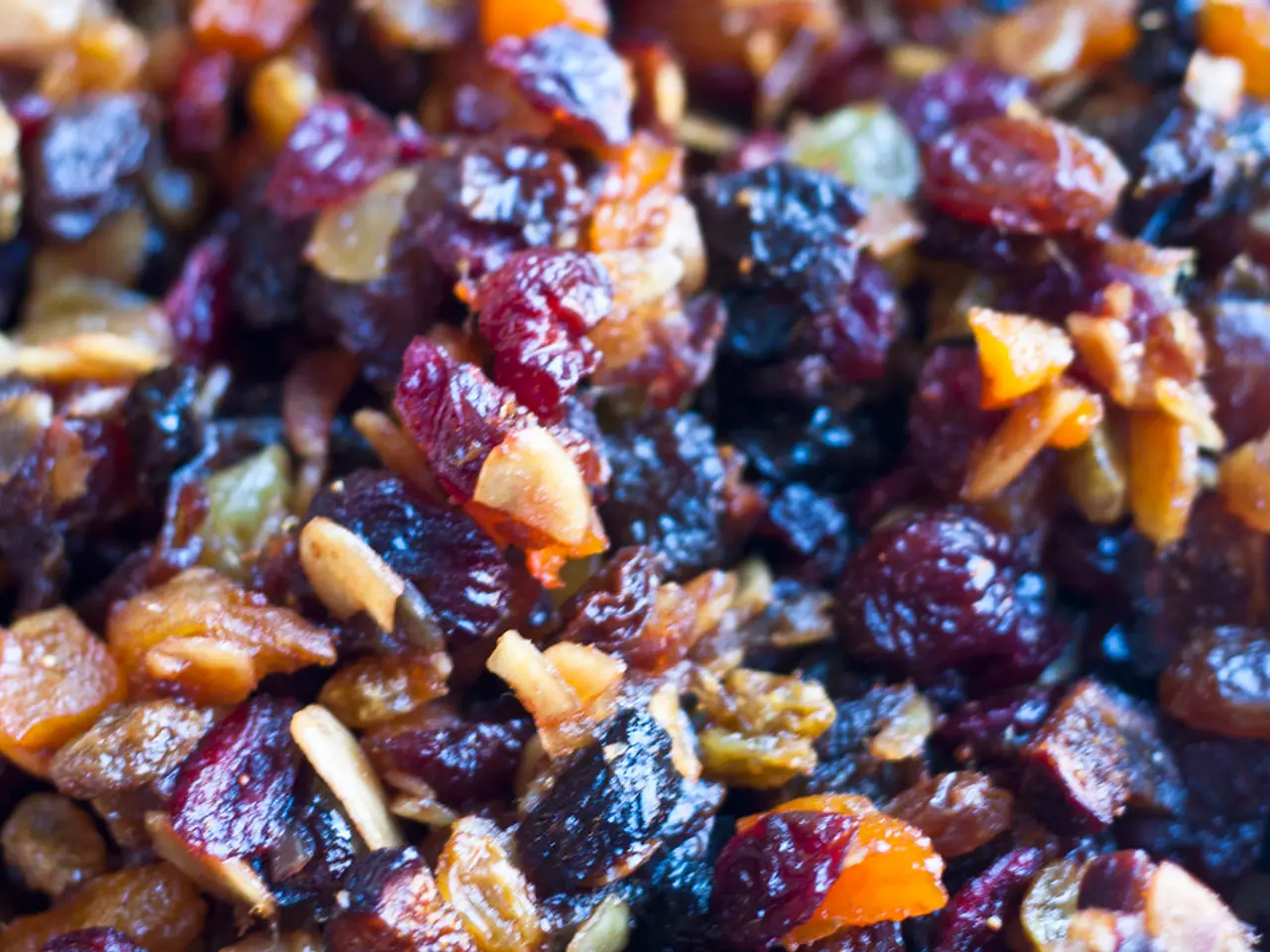Investigating the Low-Fat Nutritional Regimen: A Route to Improved Health and Vitality
A low-fat diet is not just about restricting calories; it's about making thoughtful food choices that can lead to a healthier lifestyle. This dietary approach, focusing on lean proteins, low-fat dairy, whole grains, fruits, and vegetables, can be both delicious and nutritious.
For protein, opt for skinless poultry like chicken and turkey, lean cuts of beef or lamb, fish such as tuna and salmon, and plant-based proteins such as lentils, beans, tofu, and tempeh. Avoid processed meats like sausage, pork belly, and salami, which are high in saturated fats.
Low-fat dairy options include skim or 1% milk, low-fat or fat-free yogurt (including Greek yogurt), low-fat cottage cheese, and fortified unsweetened plant-based milks like soya, oat, or nut milk, except for coconut milk due to its higher fat content.
Whole grains, such as brown rice, quinoa, and whole-grain bread, are recommended over refined grains. They add fibre and nutrients while keeping fat levels low.
Emphasize non-starchy vegetables like spinach, broccoli, carrots, zucchini, bell peppers, and leafy greens such as kale. These are low in calories and fat but high in fibre and satiety. Fruits like apples, peaches, berries provide natural sweetness and antioxidants.
Cooking methods that do not require added fat, such as grilling, baking, roasting, and steaming, are encouraged. Frying should be avoided.
A balanced low-fat meal plan includes lean proteins, low-fat dairy, whole grains, vegetables, and fruits. This combination supports a nutrient-rich, low-fat diet conducive to heart health, weight management, and overall wellness.
For instance, a low-fat meal could consist of baked salmon with a quinoa and vegetable stir-fry, followed by a bowl of mixed fruit for dessert. Another option might be a Greek yogurt with fresh berries, a slice of whole-grain toast with avocado spread, a grilled chicken salad with mixed greens, a light vinaigrette, and a side of fruit salad.
A low-fat diet can help lower blood cholesterol levels and reduce the risk of heart disease and stroke. It can also aid in weight loss and maintenance efforts due to the reduction in overall calorie consumption. Furthermore, a diet rich in plant-based foods and lean proteins can reduce the risk of developing chronic conditions like diabetes, hypertension, and certain cancers.
High-fibre foods, such as whole grains and fruits and vegetables, promote healthy digestion and prevent constipation.
In summary, a low-fat diet emphasizes nutrient-dense, low-fat foods like fruits, vegetables, whole grains, and lean proteins, making it a practical and beneficial choice for maintaining a healthy lifestyle.
Cooking methods that prioritize grilling, baking, roasting, and steaming, rather than frying, are crucial for a low-fat diet, focusing on the style of healthier cuisine. Appliances like ovens and steamer pots can be essential for adhering to this dietary approach.
Fitness-and-exercise, along with therapies-and-treatments, can complement a low-fat diet by promoting weight-management. Regular physical activity and proper health-and-wellness routines can further enhance the benefits of this dietary plan.
To manage weight effectively, it's vital to monitor nutrition intake and understand the importance of nutrient-dense food choices. Nutrition, therefore, plays a significant role in both weight management and overall well-being.
In addition to a low-fat diet, therapies-and-treatments like high-fibre foods, such as whole grains and fruits and vegetables, support digestive health, preventing issues like constipation and contributing to overall wellness.








